NEYMAR
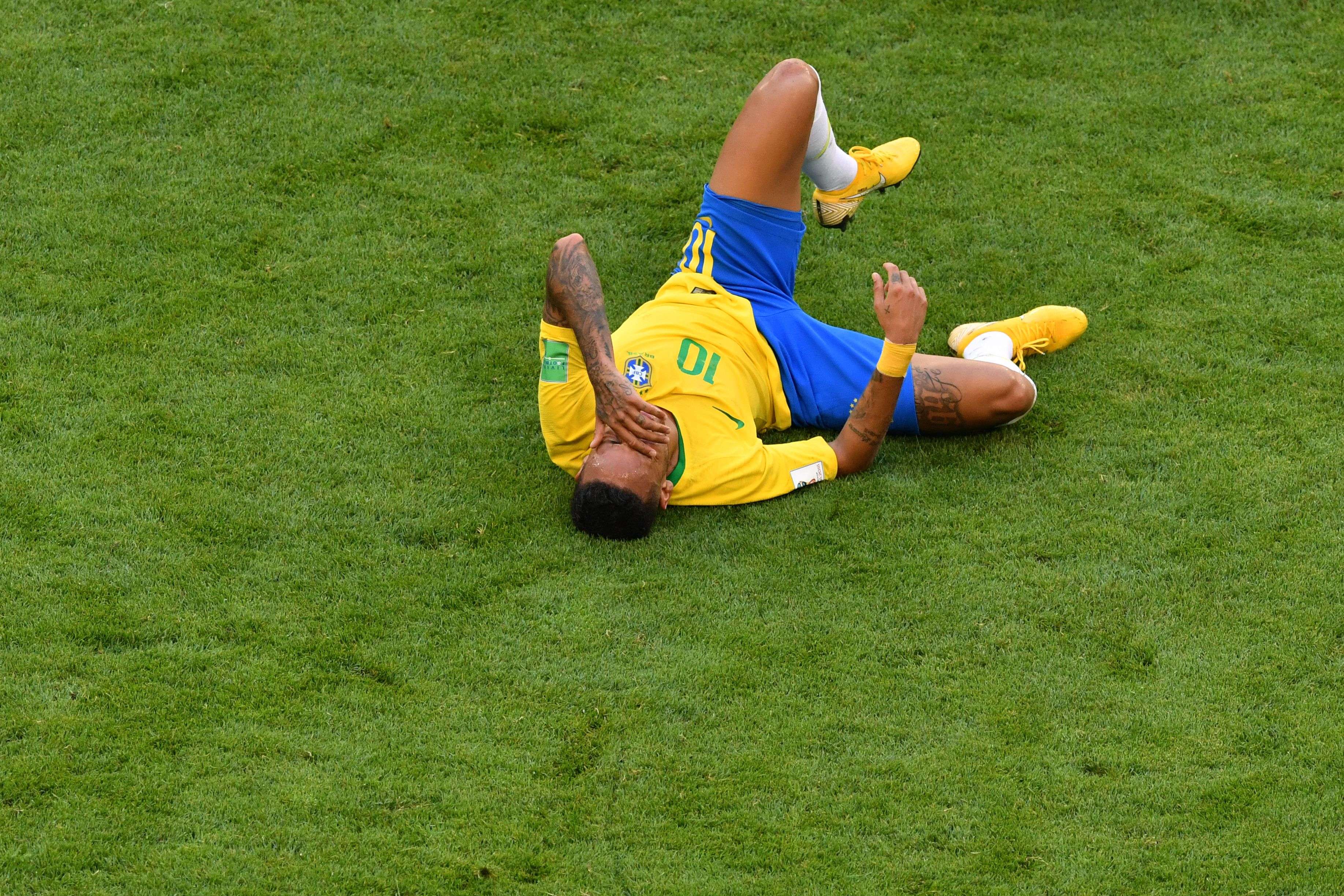
"I have said before that diving is part of Neymar's game," Celtic defender Mikael Lustig mused last November. "So, we will see it again and again.
"But if he wants to be liked as much as [Lionel] Messi, maybe he needs to stop that."
After Neymar's tiresome theatrics throughout Brazil's World Cup campaign, it's no longer about becoming as popular as his former Barcelona team-mate; it's about losing his status as the most disliked player in world football.
Russia 2018 has been a public relations disaster for the game's most expensive player.
There was widespread sympathy for the forward when he was taken out of 2014 World Cup by Juan Camilo Zuniga but, this time around, neutrals across the globe revelled in his exit at the quarter-final stage.
With his pathetic play-acting, Neymar achieved something never previously thought possible: making Brazil unpopular. So many football fans didn't want to see everyone's favourite second team win the World Cup because they couldn't stomach the thought of the No.10 lifting the trophy.
Furthermore, it wasn't as if Neymar's considerable talent was missed either, as he never really found his best form. As Brazil legend Ronaldo admitted, "We all expected more from him."
Only in one sense, though. As Lustig quite rightly pointed out, the diving was to be expected.
SAMPAOLI'S MISHANDLING OF MESSI
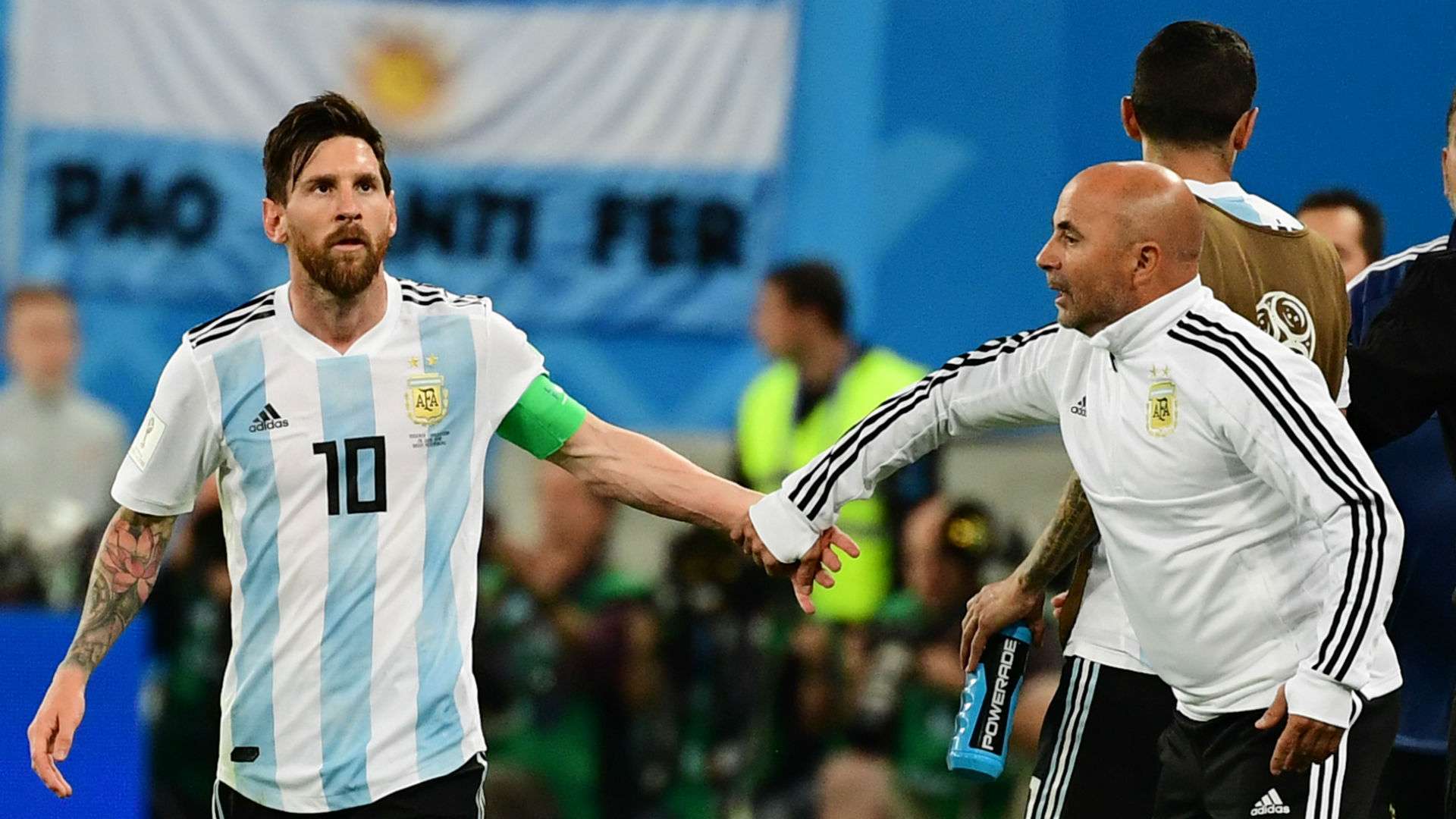 Getty Images
Getty Images
There are those that actually believe that Lionel Messi was responsible for Argentina's last-16 exit. Granted, the No.10 was not at his best in Russia – he only had one goal and two assists to show for his efforts – but one could only attribute the Albiceleste's failure to the captain if he actually had been picking the team.
But he wasn't; Sampaoli was, and he should be held accountable. He didn't once pick the same side or formation at the World Cup, and his excuse for such inconsistent selection?
“We tried many different tactics: surround Messi, create space for him... We tried to use everything we had to allow him to do what he can do. Sometimes we managed it, sometimes we didn’t."
In truth, they never managed it. Furthermore, why was Sampaoli still searching for the best way to use Messi, or a functioning system, at a World Cup? He'd been at the helm for almost a year and still hadn't figured out that playing a spent Javier Mascherano was a recipe for disaster. As for the benching of Sergio Aguero, the mind boggles.
The reality is that Sampaoli arrived in Russia without any coherent strategy. As Ossie Ardiles said of the "worst national team" in Argentine history, "Sampaoli's Plan A: give the ball to Messi and wait for a miracle. If plan A doesn't work, there’s no plan B.
"All the decline during recent years was concealed behind this incomparable genius, who, fortunately for us, was born in Argentina."
Unfortunately for Messi, his last shot at World Cup glory was overseen by Sampaoli.
SPAIN'S SELF-MADE MESS
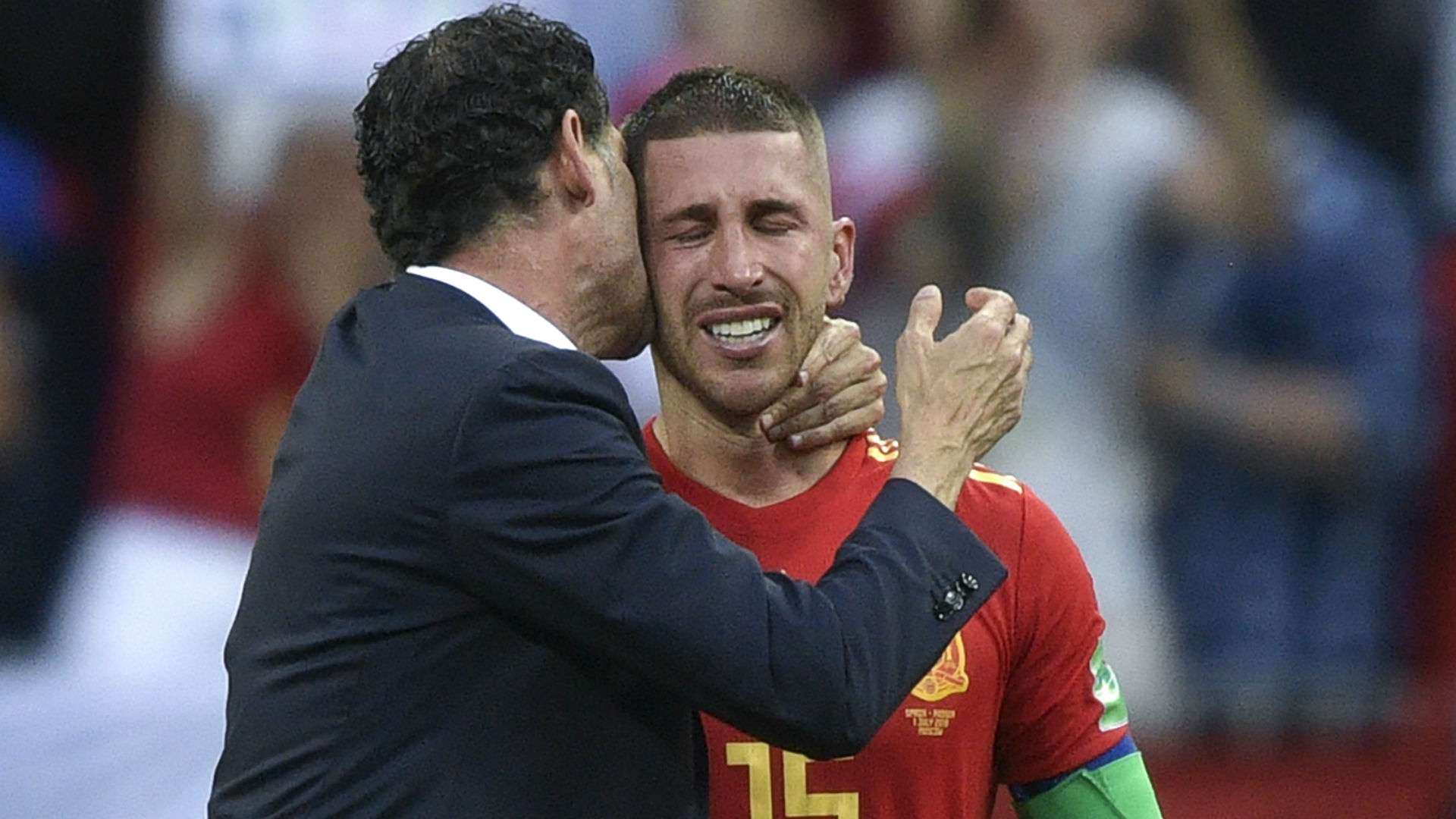 Getty
Getty
"I have no regrets," a defiant Luis Rubiales declared after Spain's loss to Russia. "I do not care about comments made with hindsight."
One didn't need the benefit of hindsight to know that the decision to fire coach Julen Lopetegui two days before the start of the World Cup was always likely to backfire. It caused chaos, changing the entire atmosphere surrounding one of the tournament favourites.
When Sergio Ramos arrived for his first pre-game press conference in Sochi on the eve of the game against Portugal, he was all smiles as he posed alongside new coach Fernando Hierro. Less than 20 minutes later, after being grilled on Lopetegui's dismissal, he announced, exasperated, "I'm going to leave now because it feels like a funeral in here when, in fact, tomorrow we're going to play in the World Cup, which is a marvellous event."
The only thing marvellous about Spain's campaign, though, was their 3-3 draw with Portugal. It would be their only decent performance. La Roja won just one game, against Iran, and only scraped through as group winners thanks to an injury-time equaliser from Iago Aspas against Morocco.
In the last 16, against hosts Russia, they passed their way into oblivion and were eliminated on penalties. They were all possession, no penetration. Hierro complained that they had bowed out unbeaten, after the lottery of penalties, but at least the shootout had offered them five clear sights of goals – more than they had managed in the preceding 120 minutes of tedious tiki-taka football.
Real Madrid had played their part in the humiliation, too, having shown their usual disregard for everyone but themselves by refusing to wait until after the tournament to either hire or announce Lopetegui as their new coach. Lopetegui himself also should have afforded his bosses at the Spanish Football Federation (RFEF) more respect by giving them more than five minutes' notice of his imminent exit. After all, he had only signed a two-year contract extension in May.
However, Spain's demise was primarily down to Rubiales' rashness. He defended himself by saying, "We have been forced to take this decision because the Spain team is every Spanish person's team."
The implication was that he had put the interests of the nation ahead of any personal feelings of betrayal. If that were the case, though, he wouldn't have thrown the team's preparations into utter disarray on the eve of the World Cup.
As Sergio Ramos said, "Instability never makes for a good companion." That wasn't hindsight either; just common sense.
THE SCAPE-GOATING OF MESUT OZIL
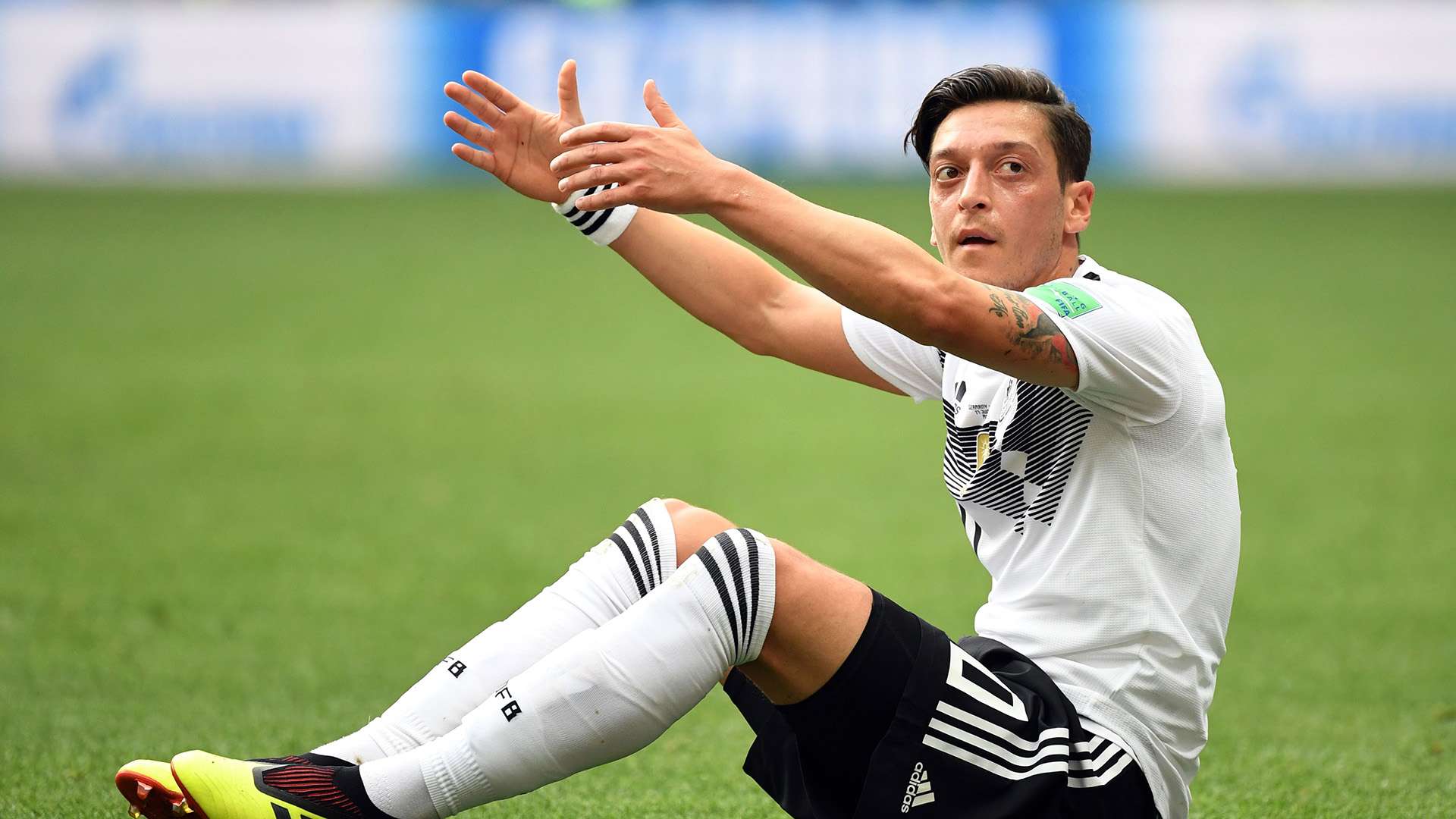 Getty
Getty
Mesut Ozil being made the scapegoat for Germany's shock first-round elimination in Russia was as inevitable as it was unfair.
The backlash began the moment he and Ilkay Gundogan were pictured with Turkish president Recep Tayyip Erdogan the day before Joachim Low named his World Cup squad.
Despite being booed in Germany's penultimate warm-up match, against Austria, Ozil was included in the starting line-up for Germany's opener against Mexico but he was then left on the bench for the subsequent meeting with Sweden – the first time he had ever been dropped for a match at a major tournament since making his debut at South Africa 2010.
The Arsenal attacking midfielder returned for the crucial clash with South Korea but, despite being his nation's most dangerous player, he was widely slated for his performance in the shock 2-0 loss. Ozil, though, created 11 chances in just 180 minutes of game time, only one fewer than Belgian winger Eden Hazard (12), who has played in three more matches at the time of writing.
Furthermore, it was not Ozil's fault that Germany's striking options were Timo Werner and Mario Gomez.
It was not Ozil's fault that Leroy Sane was left out of the squad.
It was not Ozil's fault that Sami Khedira was a spent force in midfield.
It was not Ozil's fault that Jerome Boateng was so bad that Germany performed better with 10 men than with him on the field.
It was not Ozil's fault that Low not only selected a half-fit Manuel Neuer but also elected to use him as a left winger for the final minutes of the Korea debacle.
It was not Ozil’s fault that Germany flopped.
So, for both German Football Association (DFB) president Reinhard Grindel and national team public relations manager Oliver Bierhoff to suggest that Ozil was somehow to blame was utterly unforgivable.
"The situation is absurd," Ozil's father Mustafa said. "He loves Germany and has shown commitment to his country, that he’s presented as a scapegoat is so unfair."
Unfair but inevitable.
THE EGYPTIAN FA'S TREATMENT OF SALAH
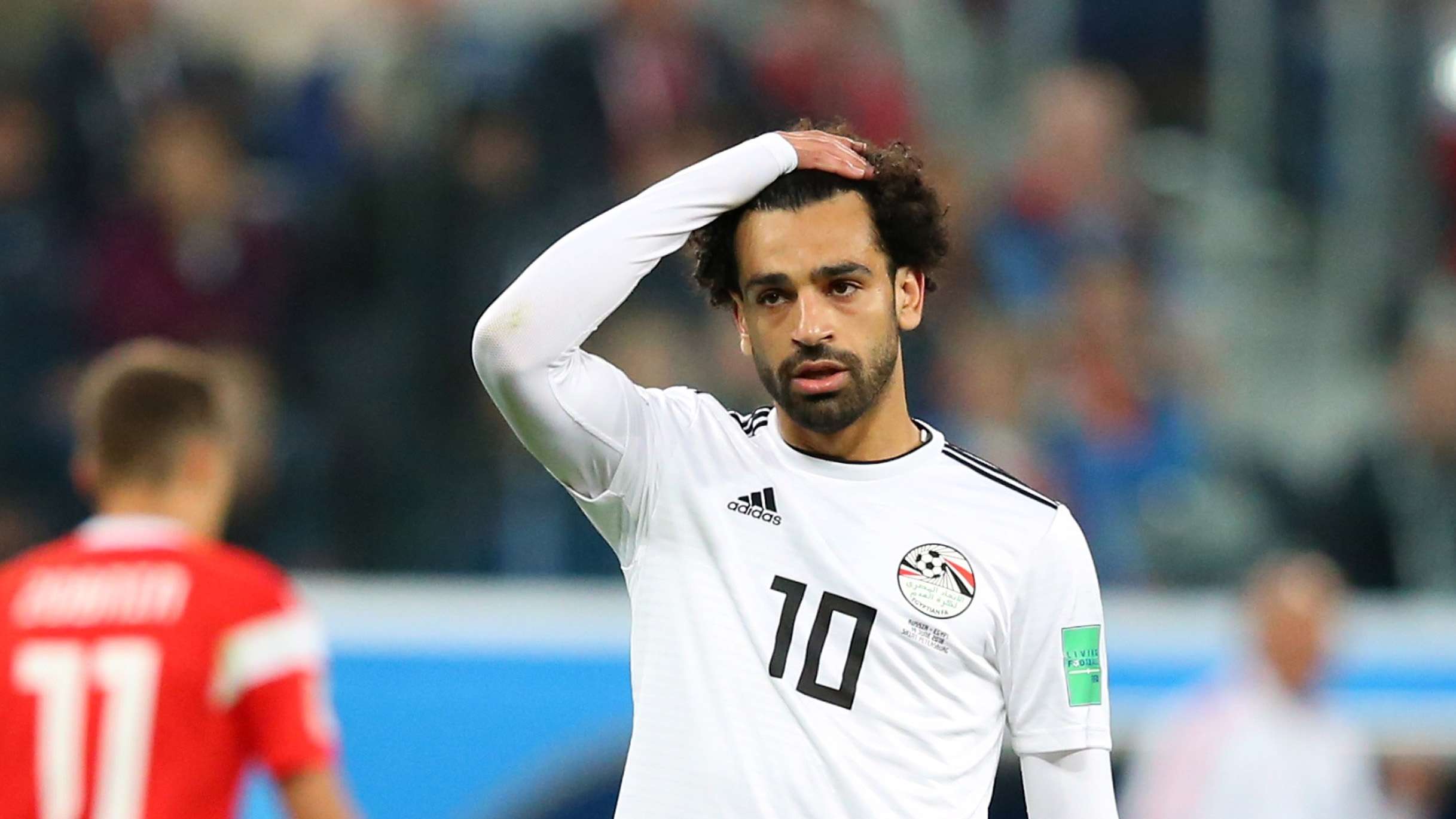
Egyptian Football Association board member Essam Abdel Fattah was enraged by a CNN story that Mohamed Salah was set to quit the national team.
“This is a big lie," he told Goal. "Nothing like this is true and I wonder how CNN are reporting these things."
Fake news or not, there's no denying that the Egyptian FA have made a real mess of their relationship with their star player. First, before the World Cup had even begun, there was the unseemly squabble over image rights.
Then came the calamitous campaign itself, which was overshadowed by claims that Salah, who should have been left alone to focus on his recovery from a shoulder injury, had instead been used as a pawn in a game of politics and public relations run by his own FA.
There were even reports that his precious down time at the team hotel was being interrupted by requests to perform meet-and-greets with visiting celebrities and dignitaries from Egypt. Whereas Salah's fitness should have been the only issue for the nation's fans during their first World Cup since 1990; instead the winger's state of mind became far more worrying.
Indeed, some supporters became so concerned by mounting speculation that Salah had decided to walk away from the whole mess after Egypt's first-round elimination, they turned up at his house to plead with him to play on.
The 26-year-old Liverpool ace reassured them by saying, "It's not over." However, he then warned, "There needs to be change."
SCAREMONGERING
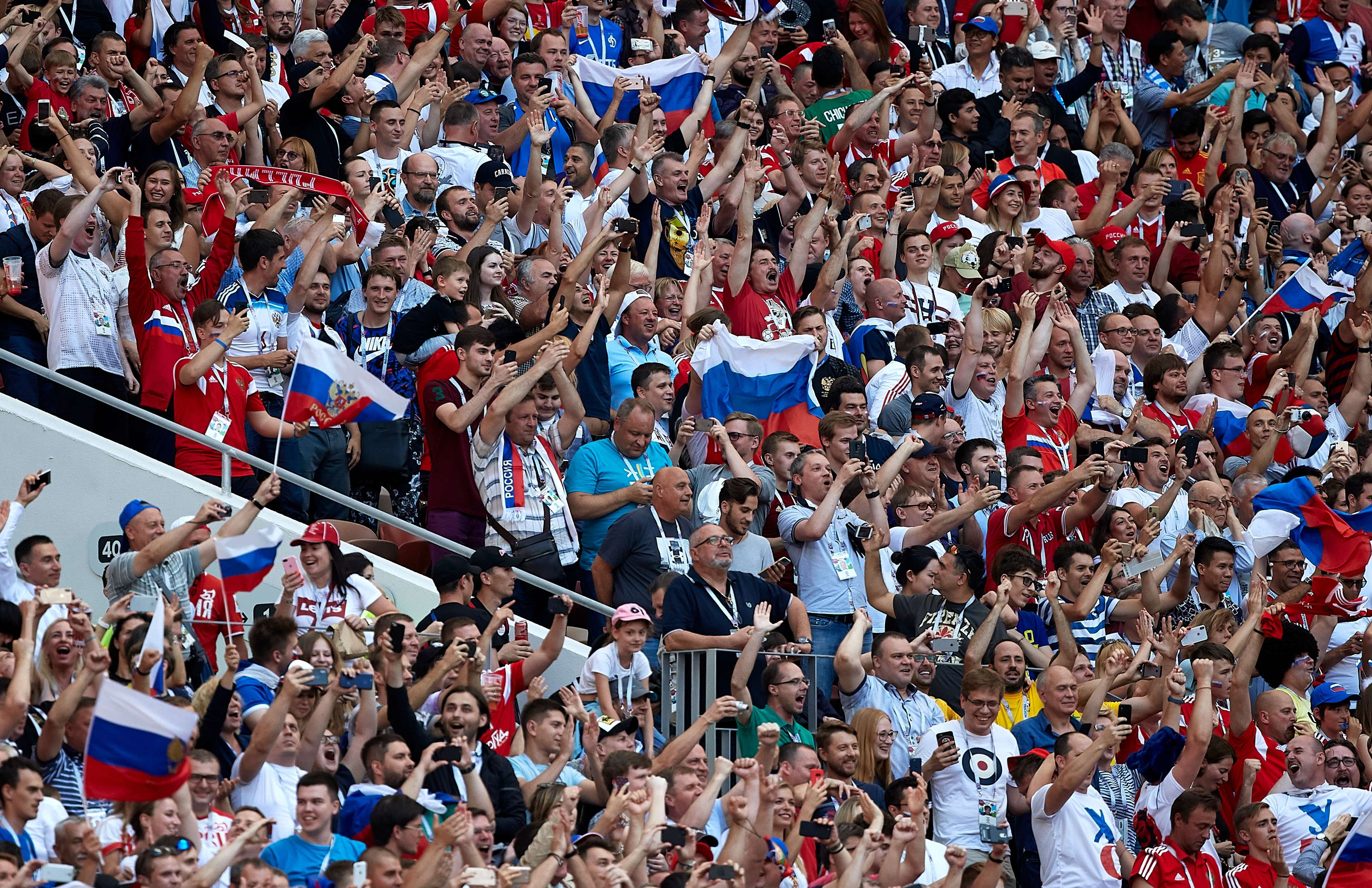
When asked by Omnisport why so few Denmark fans had travelled to the World Cup, former national team goalkeeper Thomas Sorensen mused, "Maybe there's a little bit of fear. There's been a lot of talk about politics in Russia and maybe people are a little bit afraid of taking families over there."
As a result, fans from several major European nations have been conspicuous by their absence. Indeed, it felt like there were more Belgian shirts on the pitch than in the crowd when the Red Devils played Panama at the Fisht Stadium on matchday two.
By contrast, thousands of supporters flocked to Russia from central and South America to support the likes of Mexico, Peru, Uruguay, Argentina and Brazil. If this had been a fans' World Cup, there most certainly wouldn't have been four European sides in the semi-finals.
The shame is that fear need not have been a factor in attendances.
Of course, ethical concerns could also have been an issue and whether the World Cup ever should have been awarded to Vladimir Putin's Russia remains highly debatable. However, what is beyond dispute is that the Russian people have been wonderful hosts.
The locals have been warm and welcoming, always willing to rush to Google Translate to rescue a conversation that had crashed into a language barrier. There have also been returned lost or forgotten wallets, phones and credit cards.
The cynics will say it's all an act but that's easy to say from miles away. It hasn't been an act. It has been a concerted effort by the Russian people to use this unique opportunity to show the outside world who they really are.
They have made the absolute most of it, proving proud but humble hosts. There was never anything to fear.
"We are all the same; we are just like you," one Russian supporter told Goal on the day of the quarter-final clash with Croatia. "We are all football fans."
DIEGO MARADONA
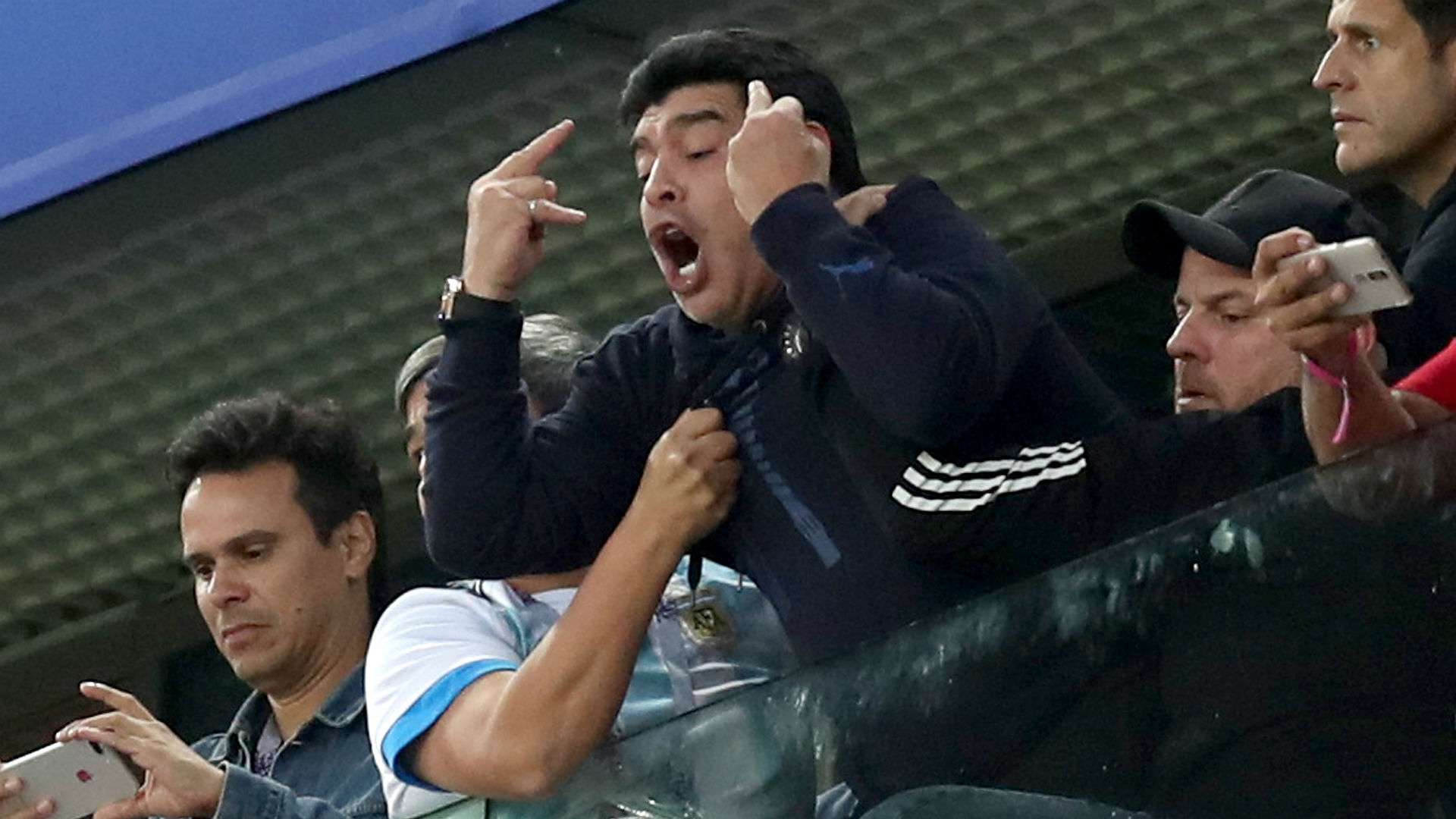
For many, Diego Maradona remained a humorous character going into the World Cup. However, amusement quickly gave way to embarrassment, which then gave way to pity.
Arguably the greatest footballer of all time has become the poster boy for the worst excesses of fame. He is car-crash TV; a tragic accident waiting to happen.
There were fears for his health in Russia long before pictures emerged of him requiring medical attention after Argentina's dramatic and decisive group-stage win over Nigeria.
Some wondered if he would still be around to watch his beloved Albiceleste play France in the last 16. From everything we know, from everything we have seen, this is not a man of healthy body or mind.
His behaviour, his outbursts, have become increasingly erratic. The sight of him giving Nigeria fans the finger after Marcos Rojo's late winner against the Super Eagles was shameful.
His subsequent claim that Colombia had been the victims of a "great theft" against England was farcical.
And there's the rub: Maradona has become a laughing stock but the very real concern is that this will all soon end in tears. We can but hope that he gets the medical help he so clearly needs.
